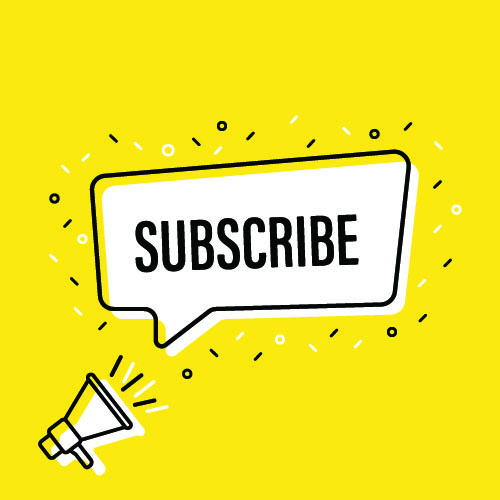
An email newsletter is a valuable tool to stay in touch with clients and establish yourself as a reliable resource with prospects. In sending out your company newsletter, you want to reach as many people that are interested in your offerings as possible. If you are looking for some tactics on how to increase your newsletter subscriptions, here are five things to focus on and implement to start reaching more prospects.
1. Set Goals
Before creating your newsletter, consider these two questions; What is this newsletter accomplishing and to whom is it targeted? Having the foundation for why your newsletter is being sent can guide the content that is included. For example, if your newsletter is a quarterly update you could include a quick excerpt with an overview of what’s going on with your company or industry, new pieces of content, company news or any other important information worth sharing to your contacts. Knowing who your newsletter is going to is also a factor in determining what content is included. For example, you might segment your contact list by primary audience and secondary audience. Understanding the needs of each audience can provide insights as to what content to include in your newsletter and allow you to personalize accordingly.
When addressing your newsletter audiences, messaging matters. Download our B2B Messaging that Matters eBook to drive more conversions with relevant messaging.
2. Sign Up Form
Determine where you want to locate your newsletter sign up form. Placing the form in numerous parts of your website can help businesses grow their prospect list. HubSpot recommends placing a sign-up form on a thank you page when someone downloads something, on a sidebar on blogs and even in a call to action (CTA) in an article. While there are a variety of locations on your website to place your newsletter sign up form, we recommend testing to find out which location works best on your site with your audience. Your site visitors might be more inclined to sign up on the blog sidebar versus the option on the thank you page, but it all depends on where you test it. There is no set formula that will work for everyone but determining what works best for your prospects will serve beneficial in increasing subscriptions.
3. Incentivize
Incentives are great ways to increase newsletter subscriptions. Using incentives allows people the option to gain something if they engage and interact with the content. Who doesn’t love a discount or something free? While there are a variety of incentives you can possible provide, these are some examples in the B2B tech world:
- Product discount
- Free Whitepaper or eBook download—anything that would be relevant to a prospect
- Free demo
- Complimentary consult
You can use your area’s local events as a draw as well. For example, Launch is located in Austin, TX, the live music capital of the world. A business located around the Austin area could use a newsletter issue to offer prospects entry in a drawing for passes to SXSW when they sign up for a demo. When asking for a subscription sign-up, promote the upcoming drawing that will be featured in an upcoming issue. The possibilities are endless but being relevant to prospects is the number one priority.
4. Utilize Pop-Ups
Some will recommend greeting first-time visitors with a pop-up that acknowledges their first visit to your website and offers a chance to subscribe to your newsletter. We are bigger proponents of acknowledging a return visitor who clearly has interest in your subject matter with a friendly pop-up offer to continue getting great content by subscribing to your newsletter. Not only can you include a pop-up on the home page, but you can also strategically place pop-ups throughout the pages on your website. In creating an engaging pop-up, ensure that your message and design is attracting to visitors.
Another thing to consider is the type of pop-up you want to include. While there are a variety of options, test some of the pop-ups that you are interested in and see which type or types have the highest number of conversions. Two examples of pop-up types include:
- Exit Intent: When a user is about to leave the page or site, indicated by the cursor going to the top of the page to close, this type of pop-up is triggered. The language on this pop-up usually includes phrases such as “before you go” or “leaving so soon.” Here you can include your option to users to sign up for your newsletter before they exit your site.
- Time-Based: These pop-ups are triggered after a visitor spends a certain amount of time on your website. For example, after someone is on a page for longer than 60 seconds, you can set up a pop-up to trigger after those 60 seconds. It can include your offer for them to sign up for your newsletter.
5. Test Accordingly
We mentioned this before, but test everything. Testing is a valuable technique in understanding what design, placement and message resonates most with your visitors. With results from testing, you can determine what to use moving forward. Test colors, placement, phrasing and pop-up vs. no pop-up. What works for one successful company will not perfectly fit yours, but it is helpful to determine what does work for your company.
Have more questions about how to improve your reach and email marketing effectiveness? We’re full of tips and tricks learned over decades of marketing experience. Contact us for a free consultation!
There are no comments